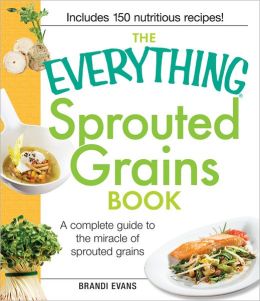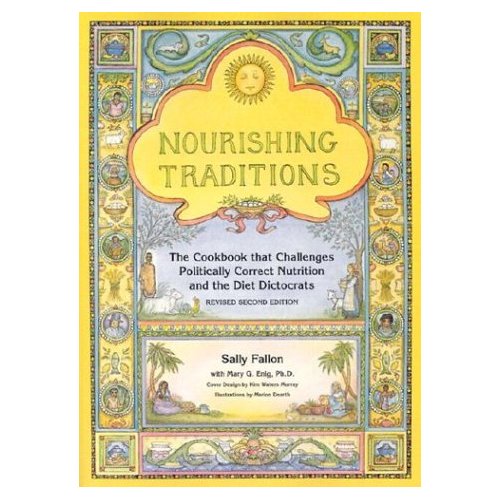There are some great lists of good, better, best type food options to help you decide with sweeteners, which oils, etc. are the best options. They also include what cookware is best to use and why and what ways to cook to preserve the most nutrition. And that's the key: how to maximize nutrition to nourish your body...and not just feed it. White flour and sugar alone will not sustain you. But, everything in moderation also.
This book explains the nutritional content of whole grains, but also explains that ideally they should be soaked or sprouted. Why? This means the seed isn't ready to bring on new life, so the nutrients are not readily accessible. There is phytic acid which keeps nutrients from producing new life. Once the seeds have been soaked in water, the phytic acid is reduced, so the seed can start to pull out those nutrients needed to grow new life (picture springtime when the rains fall and seeds are ready to grow). We harvest foods that are living and eat them because they go bad and die, right? And you are what you eat, right? We eat the grains when their nutrients are most readily availble, because they will be nutritional powerhouses for us. And I think when we don't, over time we could develop digestion issues if we are not careful.
 |
| Here's another good book that explains the following: seeds, grains, beans, etc. are in a dormant state. |
You can read more about Weston A. Price and the research he's done on the Foundation's website.
Here's a great article to summarize his findings and provide a good list of foods to eat, foods to avoid, and nutrition myths explained: http://www.westonaprice.org/basics/principles-of-healthy-diets
Here is another book along the same lines, though I haven't read it all yet.



No comments:
Post a Comment